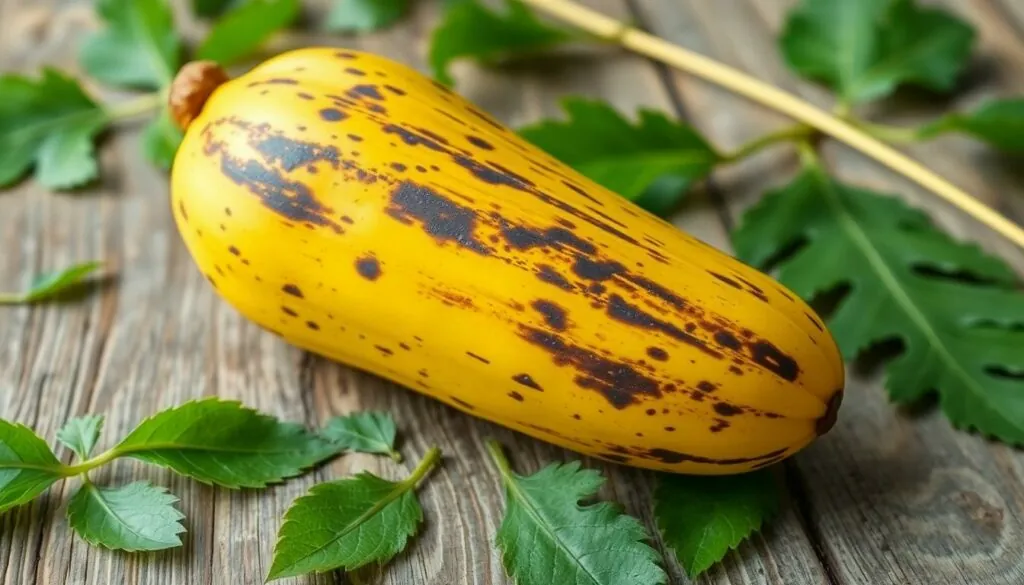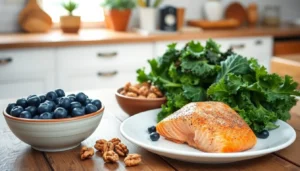Plantains might just be the underdog of the culinary world, often overshadowed by their more popular cousin, the banana. But don’t let their humble appearance fool you; these starchy delights pack a punch when it comes to nutrition. If you thought plantains were just a sidekick on your plate, think again. They’re here to steal the spotlight and show off their impressive health benefits.
Table of Contents
ToggleOverview Of Plantains
Plantains, belonging to the banana family, offer a unique nutritional profile. They typically contain higher starch levels compared to bananas, making them a versatile cooking ingredient. Significant amounts of carbohydrates provide energy, crucial for active lifestyles.
A medium-sized plantain holds about 220 calories alongside essential nutrients. Dietary fiber contributes to digestive health, aiding in regular bowel movements. Additionally, plantains supply important vitamins such as vitamin A, which supports vision and immune function.
Minerals like potassium increase heart health by regulating blood pressure. The magnesium content supports muscle and nerve function, essential for overall well-being. Consuming plantains can also enhance satiety due to their fiber content, promoting weight management.
Plantains serve multiple culinary purposes. They can be boiled, fried, baked, or grilled, adapting to a variety of dishes. Taste-wise, plantains can vary based on ripeness; unripe ones are starchy and less sweet, while ripe options provide a sweeter flavor profile.
Cooks across different cultures utilize plantains in savory meals and desserts. Common dishes include tostones and maduros, showcasing plantains’ versatility. They are not just a side dish but a nutritious staple that deserves a prominent place on the dinner plate.
Plantains offer an impressive combination of nutrition, versatility, and taste, making them a valuable addition to various diets.
Nutritional Profile Of Plantains

Plantains carry a unique nutritional profile, making them a valuable addition to various diets. This section highlights the macronutrient and micronutrient content of plantains.
Macronutrients
Plantains contain significant amounts of carbohydrates, mainly in the form of starch. A medium plantain has about 57 grams of carbohydrates. They offer around 2 grams of protein, contributing to muscle maintenance. Fat content is minimal, at roughly 0.3 grams per medium fruit, lending them to be a low-fat option. Additionally, plantains provide 3 grams of dietary fiber per serving, promoting digestive health. Eating a variety of cooking methods enhances the enjoyment of these macronutrient attributes.
Micronutrients
Plantains are rich in essential vitamins and minerals. A medium plantain provides over 30% of the daily recommended intake of vitamin A, vital for eye health. They also contain significant potassium, around 600 milligrams, supporting heart function and regulating blood pressure. Magnesium is another key mineral found in plantains, with approximately 50 milligrams per medium fruit, which aids muscle and nerve function. This combination of micronutrients underscores the health benefits linked to regular consumption of plantains.
Health Benefits Of Plantains
Plantains provide numerous health benefits that contribute to overall wellness. Their unique nutritional profile supports various bodily functions.
Digestive Health
Dietary fiber in plantains significantly aids digestive health. Each medium plantain delivers about 3 grams of fiber, promoting regular bowel movements. Fiber intake supports the growth of beneficial gut bacteria, further enhancing digestion. High fiber content also contributes to a feeling of fullness, aiding in appetite control. Including plantains in meals encourages healthy eating habits, making it easier to maintain digestive balance.
Weight Management
Plantains can support weight management effectively. With approximately 220 calories and substantial dietary fiber, they promote satiety and reduce hunger. Starchy carbohydrates in plantains provide sustained energy without causing rapid spikes in blood sugar. Focusing on plantains as a nutritious alternative to higher-calorie options facilitates balanced meals. Choosing plantains helps individuals feel fuller longer, making weight control more manageable.
Antioxidant Properties
Antioxidants found in plantains help combat oxidative stress. They contain significant amounts of vitamins, particularly vitamin A, which supports immune function and skin health. Incorporating plantains in the diet may reduce the risk of chronic diseases linked to oxidative damage. Rich in essential minerals like magnesium, plantains also contribute to overall health and vitality. Consuming plantains regularly supports the body’s natural defenses, promoting long-term wellness.
Culinary Uses Of Plantains
Plantains serve a myriad of culinary applications, showcasing their versatility across various cuisines. Cooked when green, they provide a starchy base in savory dishes, establishing a foundation for flavors. Fried plantains, known as tostones, create a crispy snack that perfectly complements meals or stands alone as a delicious appetizer.
When ripe, plantains transform into maduros, offering a sweet, caramelized flavor suited for both side dishes and desserts. Boiling provides a simpler preparation method, allowing the natural taste and texture to shine through, often served with beans or rice. Grilling plantains adds a smoky element, enhancing their flavor profile while maintaining a satisfyingly tender texture.
Cooks in Latin American and Caribbean cultures frequently incorporate plantains into traditional recipes like mofongo and pasteles. Diverse cooking techniques not only highlight the fruit’s adaptability but also determine the desired dish outcome—whether sweet or savory.
Nutrition plays a role in their culinary appeal. Each preparation retains essential vitamins and minerals, contributing beneficial nutrients to meals without excessive calories. Plantains maintain their fiber content, promoting digestive health while satisfying hunger.
These fruits stand out due to their ability to absorb flavors from spices, sauces, and marinades. Their starchy nature makes them an ideal canvas for cooking experiments, inviting creativity in the kitchen. Exploring plantain-based dishes expands culinary horizons and encourages the embrace of this nutrient-dense food.
Plantains are a powerhouse of nutrition that can elevate any meal. Their rich fiber content and essential vitamins make them a smart choice for those seeking to enhance their diet. Whether enjoyed in savory dishes or sweet desserts, plantains offer versatility that caters to various culinary preferences.
Incorporating plantains into daily meals not only supports digestive health but also contributes to overall well-being. With their unique flavor and adaptability, plantains deserve a spot in kitchens everywhere. Embracing this nutrient-dense food can lead to healthier eating habits and a more diverse diet.





